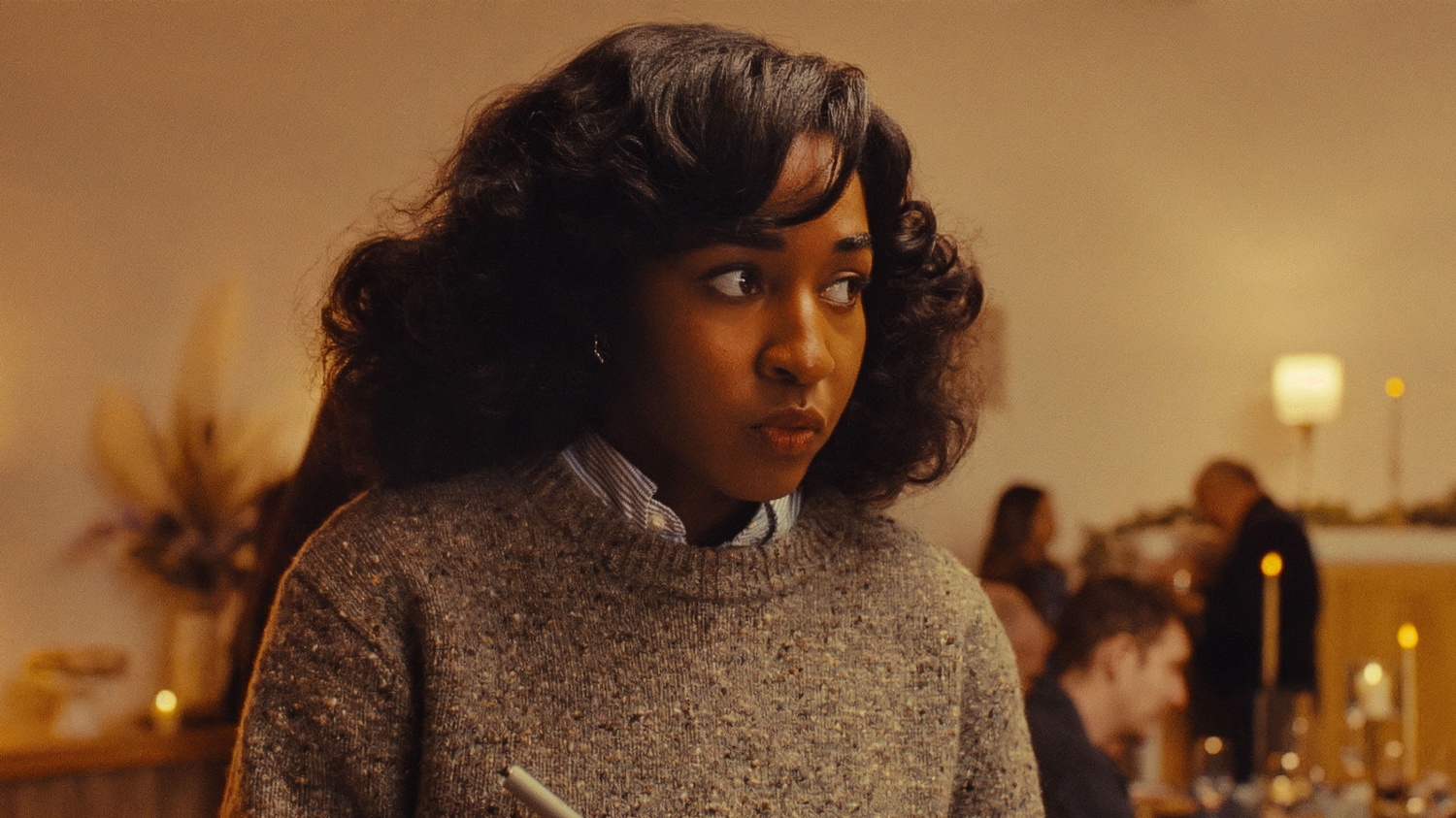
News
Federal Judge Temporarily Blocks Trump’s Funding Freeze

News
‘A Complicated Marriage’: Cambridge Calls on Harvard to Increase Optional PILOT Payments

News
Harvard Endowment Reinvests $150M in Company Tied to Israeli Settlements in Palestine

News
Harvard Settles Patent Infringement Lawsuit Against Samsung

News
Harvard Professor Vincent Brown Quits Legacy of Slavery Memorial Committee After University Lays Off Research Team
From Sundance: ‘Opus’ Retreads Trodden Tropes, Satirizes Itself
Dir. Mark Anthony Green — 2.5 Stars

“The Menu,” “Get Out,” “Midsommar,” “Phantom of the Paradise,” “Being John Malkovich,” “Get Him to the Greek,” “Pop Star: Never Stop Popping,” scientology, Kanye West — these are some of the influences that A24’s latest horror outing wears on its sleeve. Unfortunately, “Opus” doesn’t live up to any one of them, prioritizing genre conventions over genre reinvention. It’s not surprising that the final product is conventional; its gross-out horror comes across as gratuitous and rudderless, leaving a bad taste in the mouth.
“Opus” is about vanity and the corruptive influence of fame, following legendary musician Alfred Moretti (John Malkovich) and his cult of “Levelists.” Moretti invites a slew of writers and content creators to his secluded compound to give them an exclusive performance of his first album in 30 years. Is it even necessary to expound the slasher horror that ensues? Or the fact that Ariel (Ayo Edebiri) — set up to be a relatable counterexample to toxic celebrity culture — is the final girl?
Early in the film, Ariel explains to her friend Kent (Young Mazino) that all celebrities contain inherent qualities that make them interesting. In this regard, the premise of “Opus” is promising, affording a deep dive into the fictionalized Moretti — a pop musician, who puts even Michael Jackson to shame, according to the world of the film. But part of the allure of celebrities like Moretti — something that Ariel and director Mark Anthony Green fail to recognize — is their reclusiveness.
Less is more, yet once Moretti’s character is introduced, he never quite leaves the spotlight of the film, damaging his enigmatic, unsettling presence. He’s overly accessible to Ariel, who never ceases to unexpectedly (and conveniently) run into him when it’s time for another “revelatory” exposition dump. Films like “The Menu” and “Get Out” have the advantage of deliberately obfuscating their antagonists; from the start of “Opus,” it’s clear who the bad guys are, but the film pretends otherwise and the effect is one of stale mundanity.
Symbolism runs rampant in “Opus,” but the target — celebrity culture and self-absorption — is way too large for the film’s symbols and symbolic gestures to say anything of worth. Moretti’s motives are equal parts unclear and hypocritical, so horror sequences — like a massage gone terribly wrong, a wig torn off with its owner’s scalp, a hand stabbed while in search of coveted pearls, and poison-induced full-body bloating — don’t generate the desired comic or satirical effect.
The only original aspect of “Opus” — Moretti’s character and the prospect of a musician-turned-slasher villain — is sidestepped for a more traditional approach, putting tried and true religious cultdom at the story’s center. Moretti’s musical career and Malkovich’s musical performances are quickly swept aside to make space for the same ol’ same ol’ — for the religious cult to do religious cult things and the final girl to bravely and successfully resist those religious cult things — with a few obligatory scratches when all’s said and done.
All of this is to say that “Opus” is disappointing. Malkovich and Edebiri put on solid performances, and A24 virtually gave Green carte blanche to shoot whatever crazy scheme popped into his head. But the saying rings true: A good script can make a bad film but a bad script can never make a good film. A clear example of the latter, “Opus” takes the easy way out, and its predictability stems from its adherence to marketable, formulaic horror.
But what about an M. Night Shyamalan-style twist to shake things up? What if Moretti’s grand plan is still in motion even after all the dominoes of “Opus” have fallen? Green attempts to pull the rug out from under the audience one last time in a “Two Years Later” epilogue scene, but what’s underneath the rug isn’t all that exciting or illuminating — yet another cliché in a film that just can’t get enough of them.
—Staff writer Joseph A. Johnson can be reached at joseph.johnson@thecrimson.com. Follow him on X @onlyjoejohnson.
Want to keep up with breaking news? Subscribe to our email newsletter.
